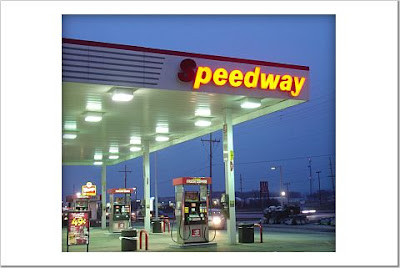The World Won't Stop for Us
No matter how many poems we read, essays we write or art galleries we attend, I don't believe we ever come closer to grasping existential crises as poignantly as we do with that old childhood query:
Q. Why'd the chicken cross the road?
A. To get to the other side.
Remember back to the first time you heard that "joke" or, just as interesting, the old maxim about the chick and her egg. Just to be clear: I'm not here to theorize that the sum of human crises can be best explained with chickens (it can), but rather to note that a great many minds have spent lifetimes searching for answers, when it was right there in the punchline all along.
It's all very simple, isn't it? The punchline, I mean. It makes sense. And it's funny to us precisely because we were expecting more. We want a beefier punchline; more motivation; more cause and effect.
Ultimately, it all boils down to this: we want the action to mean something. We want there to be more. Plain and simple.
Studies have shown that people are more likely to empathize with characters if they can see themselves in them. So if you take a very real, very defined person with obvious features, you reduce by a fair sum the number of people that can identify with them.
But if you overlay their features with effects... if you still use the human visage as your focus but make it somehow less defined... you can reach a significantly greater number of people.
It's for this reason that companies will try to incorporate a member of every race into ads that feature more than one visage: you reach more people when you either mute discernible features or you offer clear representations of everyone in your desired demographic.
By this same design, people don't want to see themselves in undesirables. If the outcome is unfortunate, it's best we distance ourselves as much as is humanly possible. This holds true for diseases, crime, natural disasters. The less we see of ourselves in these people, the more loudly we can proclaim: "That will never happen to me."
So if you've ever wondered why it's a chicken — and not a human that crosses the road... now you know.
It's easier to laugh when it's a chicken. We're programmed to see ourselves as anything but meaningless. We want for things to make sense. And for a "chicken" to cross the road for a reason as pragmatic as it is ultimately meaningless?
God forbid we ever confronted the futility — or even the naturalness — of human existence. We yearn for cause and effect in a way that requires we see ourselves (our purpose) as superseding those of the evolutionary "inferiors."
Though all the while our world spins around us, telling the same punchline again and again.







